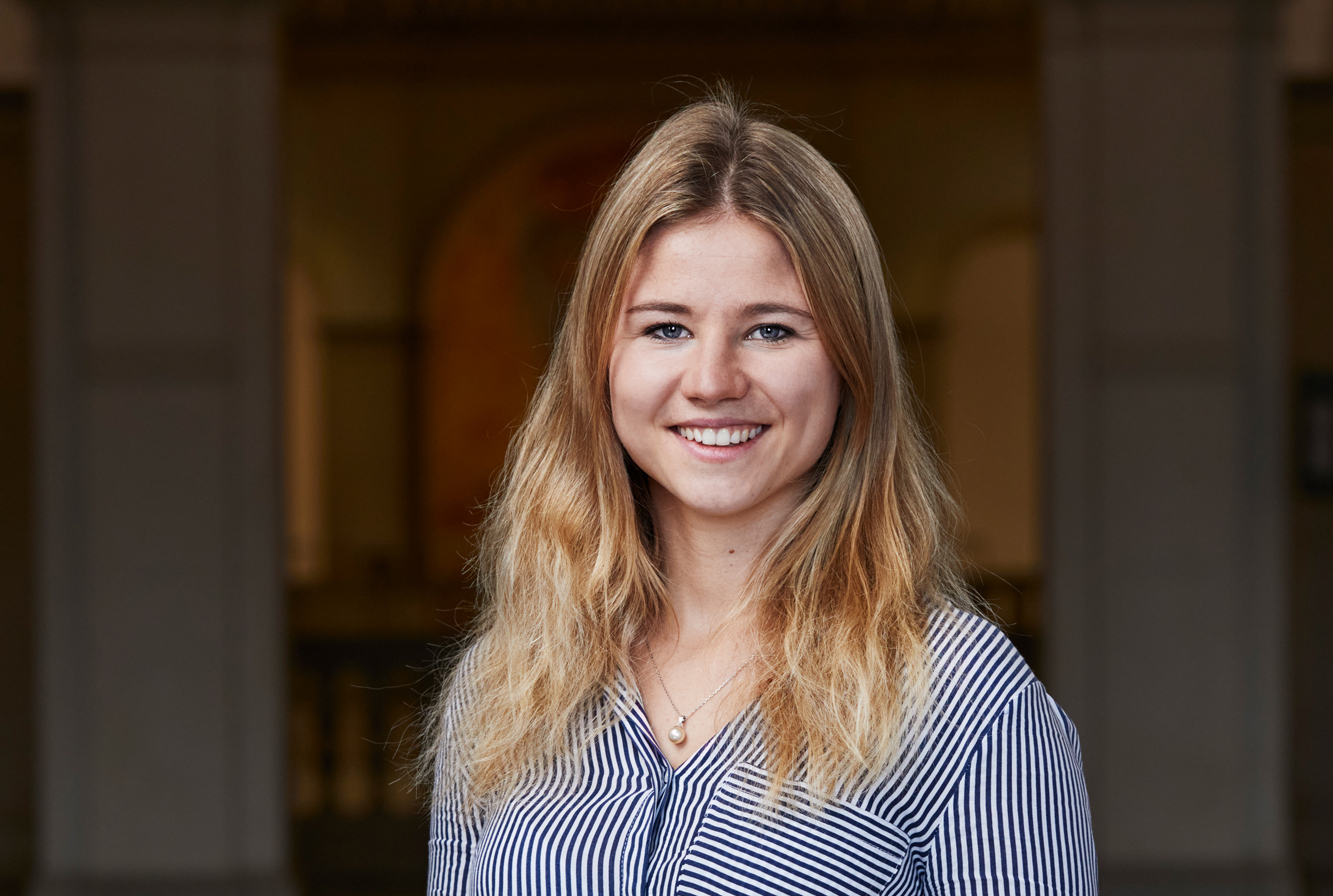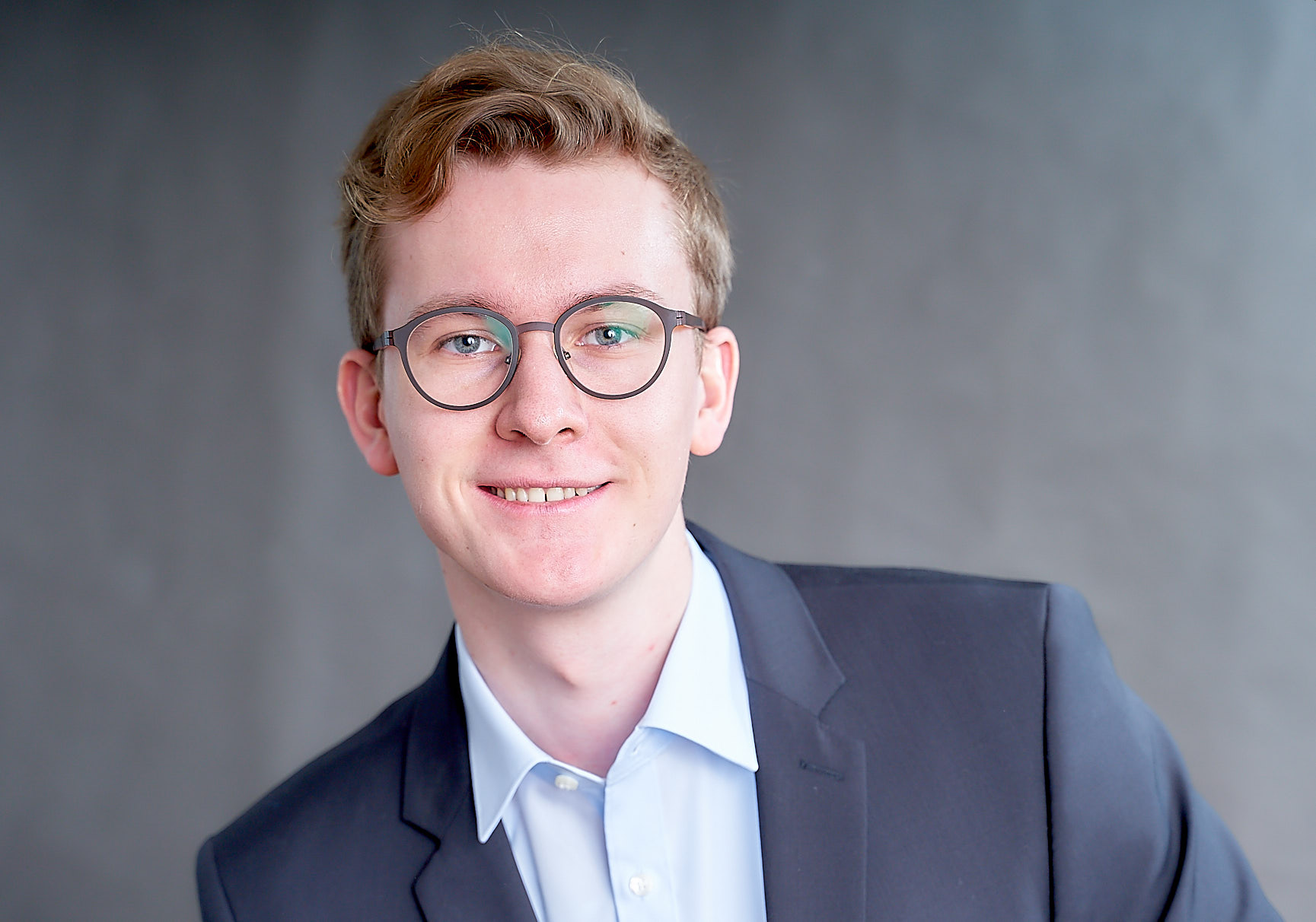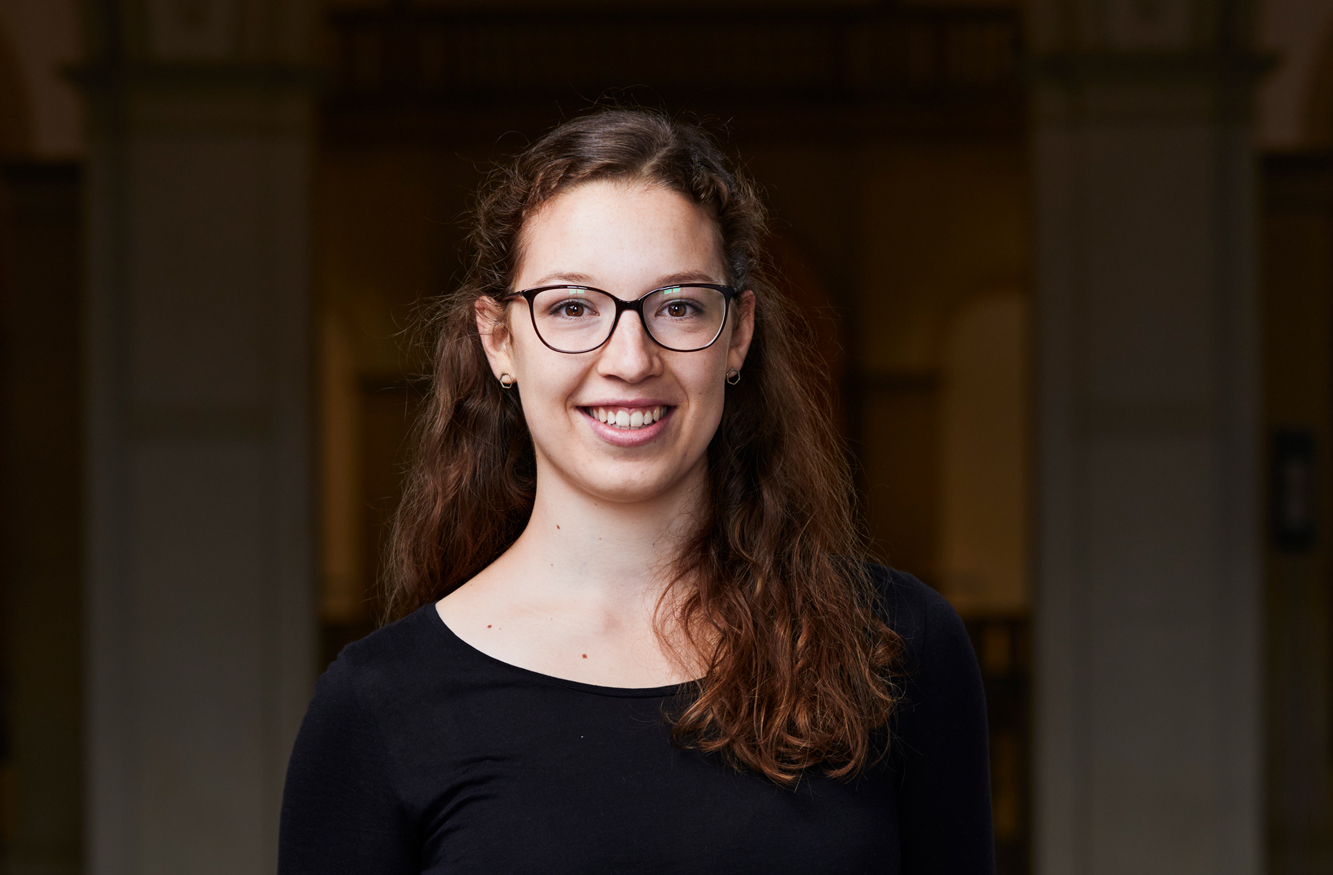Three new excellence scholarship holders at D-CHAB
- D-CHAB
- IPW
- LOC
The Excellence Scholarship & Opportunity Program (ESOP) of ETH Zurich promotes outstanding students every year. They are among the best and are awarded up to CHF 48,000 for their Master’s degree program at ETH Zurich, allowing them to concentrate fully on education and research. This year, the D-CHAB has three scholarship holders: Juliane Habiger, Linus Boll and Sarah Berger convinced successfully the jury with their project ideas.
Juliane Habiger (Pharmacy) - #macrocycles
Juliane Habiger, from the canton Aargau/Switzerland, completed her Bachelor degree in Pharmaceutical Sciences at ETH, and gained experience as teaching assistant. "Pharmacy is exciting because it is a mixture of many different subjects: chemistry, biology, but also medicine," Juliane says, "I’m basically interested in everything. But I’m particularly fascinated by the huge effect one molecule can have on the body: I am interested in the processes that are changed by a drug."

In her Master's project, Juliane wants to take a closer look at macrocyclic molecules. Over 100 macrocyclic drugs are currently on the market, and researchers put great efforts into developing more of them. "In terms of size, macrocyclic molecules are located between small molecules such as aspirin and large molecules such as proteins," Juliane explains. "Small molecules usually position themselves in a binding pocket of a protein and execute their effect from there. The flexible and larger macrocycles, however, can operate between two proteins. They can, for instance, influence protein-protein interaction and act as inhibitors." Juliane wants to study N-desmethyl-thalassospiramide C, an important inhibitor of the cysteine protease Cathepsin K. Cathepsin K is involved in processes that lead to breakdown of bone and cartilage. Thus, inhibitors of Cathepsin K are important in therapies against diseases such as rheumatoid arthritis or osteoporosis. "However, relatively little is known about the exact mode-of-action of macrocycles. Thus, my Master’s thesis aims at basic research. The main goal is to better understand the conformational changes of macrocycles, but the thesis also includes the synthesis of these molecules."
Juliane's personal goal is to learn more about the chemical side of pharmacy, also with regard to her future career. The scholarship helps her in many ways: "I worked a lot during my Bachelor's degree, so it's a great financial relief, and I can focus more on my studies. But the scholarship is not only about money, it’s also about mentoring. It is a recognition that you're doing a good job." In addition, the events for scholars are exciting opportunities to meet people from completely different fields. "Apart from that, I really appreciated the support during my scholarship and the application process. That was great."
Linus Boll (Chemistry) - #platinum(0)nanoparticles
"I am originally from Berlin, but I have already done my Bachelor of Chemistry at ETH Zurich," Linus says. "ETH has an excellent reputation and is a bit further away from Berlin, so it was something new for me. I was very pleased, when I got accepted. Right after my Bachelor's degree, I continued with the Master’s degree program. I really like it here – the research possibilities seem almost limitless."

Linus was able to convince the jury with a special Master’s project idea: research on peptide-encapsulated platinum nanoparticles for cancer therapy. "The standard cure for advanced hepatocellular carcinomas is currently the drug Sorafenib. The problem is, it’s not specific enough. That’s why the drug can target healthy cells as well, which causes undesired side effects," Linus explains. Since current therapy possibilities are still limited, it is important to find new strategies. "Therefore, I’m incredibly excited about the platinum nanoparticles that the Wennemers group investigates. So far, however, there is hardly any information on their intracellular behavior, and that’s where my idea comes in."
Platinum(II)-based drugs are often prescribed for cancer therapy, but their effectiveness is limited by toxicity to healthy cells. Hence, researchers tried an alternative approach using nanoparticles. "The Wennemers group has developed a special peptide, and has recently reported that platinum nanoparticles coated with this peptide show selective toxicity against liver carcinoma cells," Linus says. However, platinum(0)nanoparticles must be oxidized in order to induce a cytotoxic effect. Linus wants to investigate the behavior of the nanoparticles in the cell, particularly the oxidation process, using special fluorescence probes. His semester abroad at the National University of Singapore inspired Linus to this approach. In Singapore, he had the opportunity to work in the group that developed these fluorescence probes.
For Linus, the scholarship is an immense financial relief, and a great honor: "But I am also very happy to get access to the incredibly ESOP network, which will be beneficial in many ways," Linus says. Now he is very motivated to start his Master’s project: "When you take on new tasks, your own expectations are very high at the beginning. Of course, not everything will work out, but in the end, the prospect of making new discoveries outweighs the anticipation. This is what motivates me to keep going, and helps me to overcome setbacks."
Sarah Berger (Interdisc. Sciences) - #Interleukin-11
Sarah is from Switzerland and chose ETH "right after the Gymi, because only ETH offers an interdisciplinary natural sciences program," she says. Sarah appreciates the various options and possibilities, offered by this Master’s course. She particularly likes immunology, especially the field of autoimmune diseases and cancer therapy. "I am particularly interested in cytokines – regulatory proteins that are responsible for signal transmission between cells," Sarah explains. She is excited about the effect that cytokines have on cells. Prior to her Master's program, she did a lot of research, and tried to combine known facts from immunology with open questions in cancer therapy.

For instance, cancer cells are able to escape apoptosis – the programmed cell death. Understanding this process is crucial for the development of therapies. Interleukin 11(IL-11) is a cytokine of the IL-6 family, a known hematopoietic growth factor, and has been shown to influence the apoptosis signaling pathway in epidermal cancer cells. Hence, IL-6 could also play an important role in therapies.
One possible approach for Sarah’s Master’s project is to investigate the effect of IL-11 on the extrinsic apoptosis signaling pathway in cancer cells. Of particular interest is the relationship between IL-11, the tumor necrosis factor (TNF)-α and TNF-β in breast cancer cells as well as their sensitivity to chemotherapy. "Basically, chemotherapy is a treatment option," Sarah explains, "but it’s not always working well and has significant side effects. So, if there was a way to support the body in defeating the tumor itself, that would be ideal. In fact, there are already several immunotherapies that have been proven to be effective."
It remains to be seen whether Sarah’s Master’s thesis will really pursue this topic. For now, she is looking forward to her term paper on investigating interleukin-receptor pairs for a more specific cancer immunotherapy. "Lectures are exciting, but I have noticed that I really enjoy being in the lab, and to choose what kind of research and experiments I want to do". Her personal goal is to gain experience in different laboratories in order to find her research focus. And the scholarship? "I'm really grateful for it," Sarah says happily, "it's financially much more relaxed, if you don't have to think about rent all the time. I’m simply less worried and I’m more flexible. Until now, I've always worked in a shop once a week. With the scholarship, I definitely notice that I have more time for my lectures and for my studies in general, but also for my free time. That's good for me."
Further information
external page Website:Excellence Scholarship & Opportunity Programme